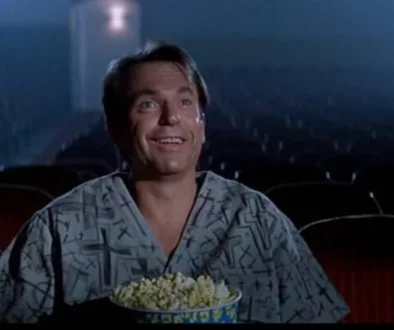Amnesia Day
I don’t wear a poppy. Laurie Penny has written a very good article, expressing many views that I agree with, here. I don’t engage in the silence at 11 o’clock either. I know that most ordinary people who do observe the silence and wear the poppy do so for sincere reasons. But I myself cannot stomach it. I think my reasons are less intellectual and more to do with the sheer, physical revulsion I feel at the hypocrisy on display in images like this:
 |
What’s lost in all this is real history.
Both wars were brutal squabbles between rival imperialisms, competing for territory and markets. WWI wasn’t a failure by the criteria of the British ruling class at the time; it was a success. The British empire ended up with more territory than ever before. WWI didn’t end because sensitive poets made the generals and politicians see the light, nor did it end because of an Allied military victory. It ended because the Russian and German people rose up in revolution, smashed their ruling monarchies, demanded peace and – all too briefly – started to create workers’ states.
The conditions for the rise of German fascism were created by the vicious carve-up at Versaille, combined with the crisis of capitalism called the ‘Great Depression’… but there might well have been another imperialist war waged by Germany, even without Hitler and the Nazis. Germany had been squeezed out of the increasingly balkanised world financial and currency markets. But Hitler – like Franco and Mussolini – was well-liked by many members of the British ruling class as a bulwark against Bolshevism, and appeasement was still what most of them wanted, even after the war started. Halifax congratulated Hitler on his achievements. The British ambassador to Nazi Germany was considered by the foreign office to be almost a Nazi himself. Members of Churchill’s cabinet – most particularly Rab Butler – were involved in trying to arrange a surrender to Germany. Before the war, Czechoslovakia was abandoned to the Nazis despite having been promised British protection. British and American businesses did good trade with Nazi Germany, even during the war. Britain only declared war once it was realised that Hitler represented more than just a continuation of what was percieved as a normal and reasonable German ambition to dominate Mitteleuropa.
Democracy wasn’t what Britain entered the war to protect. When Britain declared war, it declared that its empire was at war too, including vast swathes of colonial subjects who were not consulted. The British ruling class never questioned its own right to possess an empire, even while trying to stop Germany from having one.
Meanwhile, our disinterest in the persecution of the Jews was near total. And even well into the war, the Allies refused to lift a finger to impede the frenzied mass-murder of the holocaust. Auschwitz was never bombed, nor were any of the railway lines used in transporting murder victims, despite the fact that the Allies knew perfectly well what the lines and camps were being used for. Meanwhile, German civillians were punished with horrific aerial bombardments… while the factories owned by American companies were carefully left intact where possible, to the point that German civillians twigged and started to use them as air raid shelters. Such companies were never prosecuted for treason. In fact, a lot of them recieved compensation from Allied governments after the war for accidental damage to their property done by Allied bombs.
The above merely scratches the surface of the cynicism and collusion which gets smothered by our day of ‘remembrance’.
Similar murky realities are obscured by the poppy day rhetoric when it’s applied to our current dirty military activity in Iraq and Afghanistan… not to mention what British troops have gotten up to in Somalia, Sierra Leone, etc. This isn’t lack of ‘support for the troops’. I protested against their being sent and I demand that they be brought back right away. That’s more supportive than any sentimental platitude which leaves unchallenged the wars in which they are fighting.
Platitudes leave unmentioned and forgotten too many important facts, too much vital context, and too many dead people. How about the fact that thousands of Allied troops were deployed to Soviet Russia immediately after being withdrawn from the frontlines of the First World War? How about the fact that our democratic governments immediately attacked and invaded the new worker’s state, also aiding the Whites in the civil war, a bunch of Tsarist and bourgeois gangsters who rampaged through Russia with savagery and ferocity that both eclipses and contextualizes the much-more-talked-about Red Terror?
Poppy day obscures the fact that even when fighting Hitler, we were fighting an enemy who was produced by the same system of capitalism and imperialism upon which our own nation was based. Poppy day doesn’t represent the kids who were murdered by the army during WWI for desertion and ‘cowardice’. It doesn’t represent the victims of British and/or American imperialism, past or present. It doesn’t represent the genocidal wars inflicted by America upon the Phillipines or Nicaragua. It doesn’t represent the people we kicked off the island of Diego Garcia. It doesn’t represent the Iraqis killed by that helicopter while trying to surrender. It doesn’t represent the innocent people slaughtered at Hiroshima and Dresden and Fallujah.
Remembrance Day isn’t what it should be called. When you remember one vital thing and forget hundreds more, that isn’t ‘remembrance’. That’s amnesia.
I’ve just realised what the collective noun for warmongers is: a lie.


March 11, 2012 @ 5:14 am
More stuff I didn't know. I will remember this.
August 7, 2012 @ 9:54 pm
Right on the mark, brother.